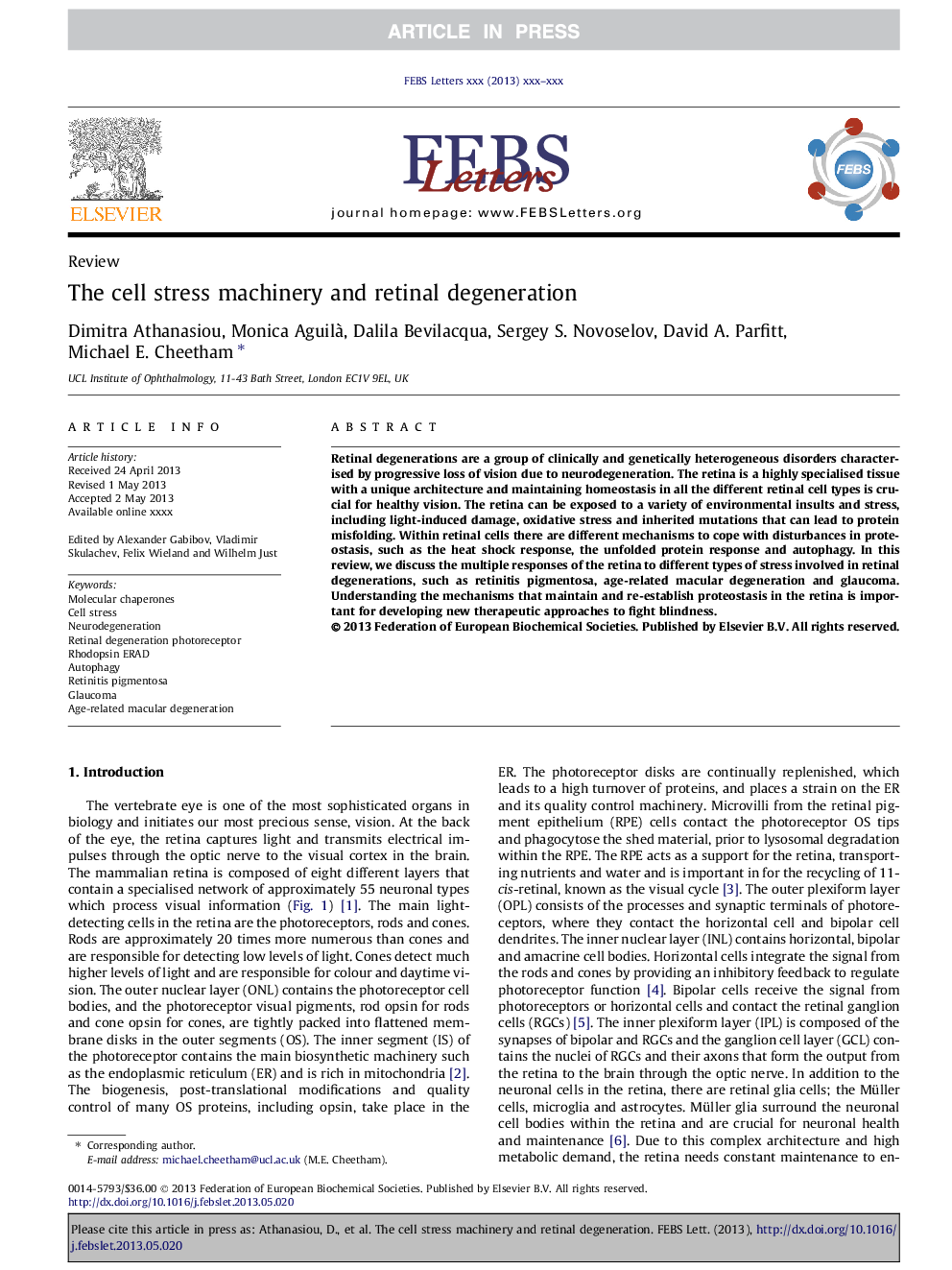| Article ID | Journal | Published Year | Pages | File Type |
|---|---|---|---|---|
| 10871349 | FEBS Letters | 2017 | 10 Pages |
Abstract
Retinal degenerations are a group of clinically and genetically heterogeneous disorders characterised by progressive loss of vision due to neurodegeneration. The retina is a highly specialised tissue with a unique architecture and maintaining homeostasis in all the different retinal cell types is crucial for healthy vision. The retina can be exposed to a variety of environmental insults and stress, including light-induced damage, oxidative stress and inherited mutations that can lead to protein misfolding. Within retinal cells there are different mechanisms to cope with disturbances in proteostasis, such as the heat shock response, the unfolded protein response and autophagy. In this review, we discuss the multiple responses of the retina to different types of stress involved in retinal degenerations, such as retinitis pigmentosa, age-related macular degeneration and glaucoma. Understanding the mechanisms that maintain and re-establish proteostasis in the retina is important for developing new therapeutic approaches to fight blindness.
Keywords
Related Topics
Life Sciences
Agricultural and Biological Sciences
Plant Science
Authors
Dimitra Athanasiou, Monica Aguilà , Dalila Bevilacqua, Sergey S. Novoselov, David A. Parfitt, Michael E. Cheetham,
